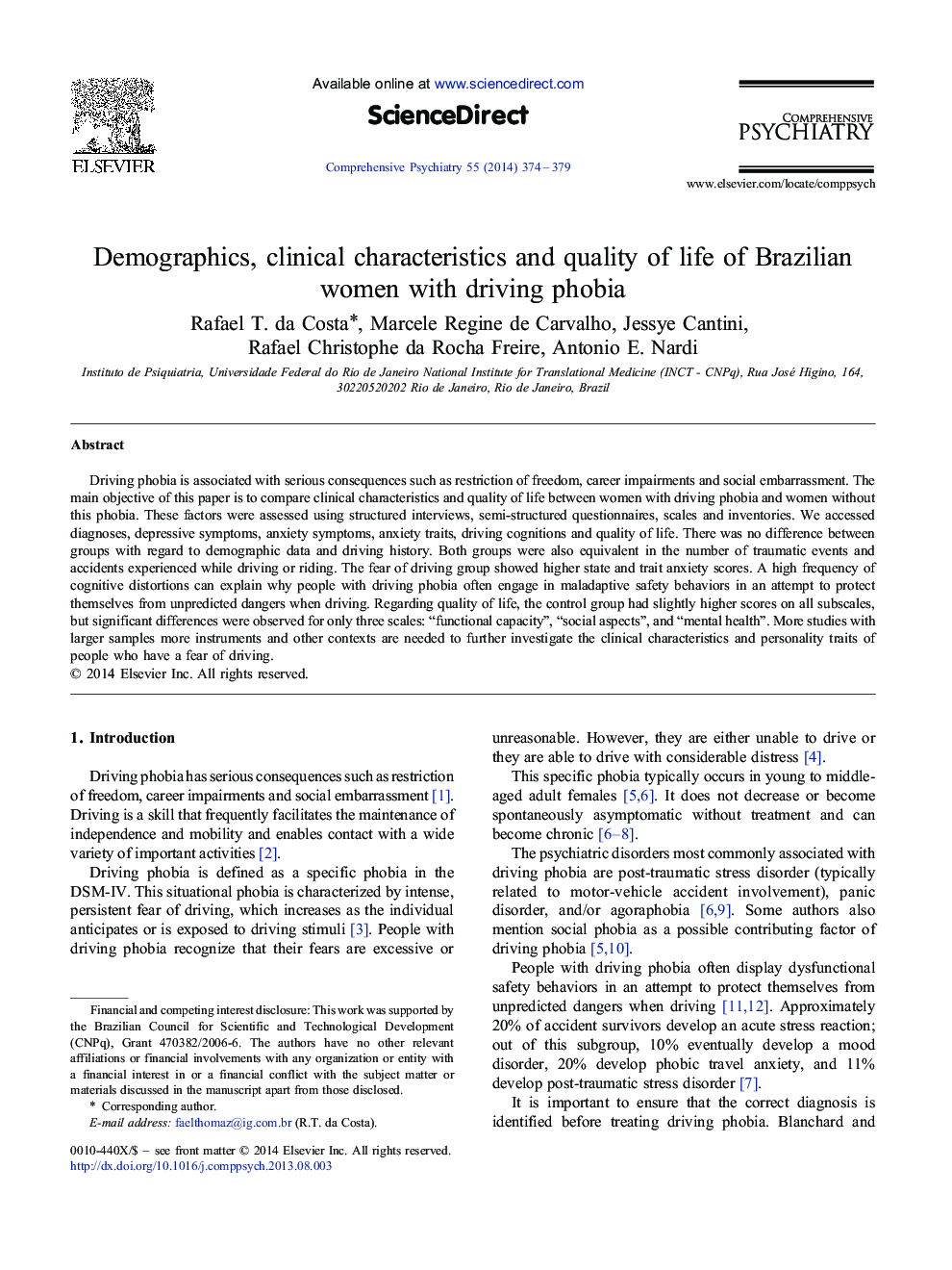| Article ID | Journal | Published Year | Pages | File Type |
|---|---|---|---|---|
| 317560 | Comprehensive Psychiatry | 2014 | 6 Pages |
Driving phobia is associated with serious consequences such as restriction of freedom, career impairments and social embarrassment. The main objective of this paper is to compare clinical characteristics and quality of life between women with driving phobia and women without this phobia. These factors were assessed using structured interviews, semi-structured questionnaires, scales and inventories. We accessed diagnoses, depressive symptoms, anxiety symptoms, anxiety traits, driving cognitions and quality of life. There was no difference between groups with regard to demographic data and driving history. Both groups were also equivalent in the number of traumatic events and accidents experienced while driving or riding. The fear of driving group showed higher state and trait anxiety scores. A high frequency of cognitive distortions can explain why people with driving phobia often engage in maladaptive safety behaviors in an attempt to protect themselves from unpredicted dangers when driving. Regarding quality of life, the control group had slightly higher scores on all subscales, but significant differences were observed for only three scales: “functional capacity”, “social aspects”, and “mental health”. More studies with larger samples more instruments and other contexts are needed to further investigate the clinical characteristics and personality traits of people who have a fear of driving.
